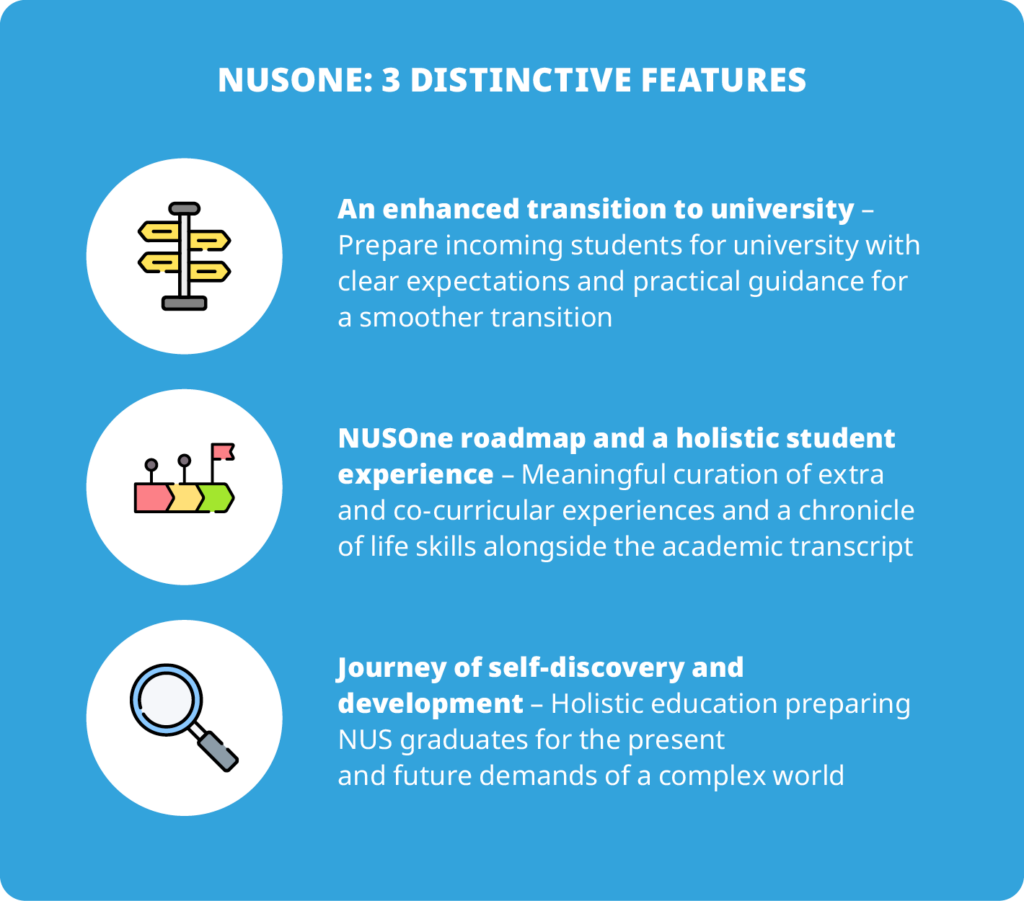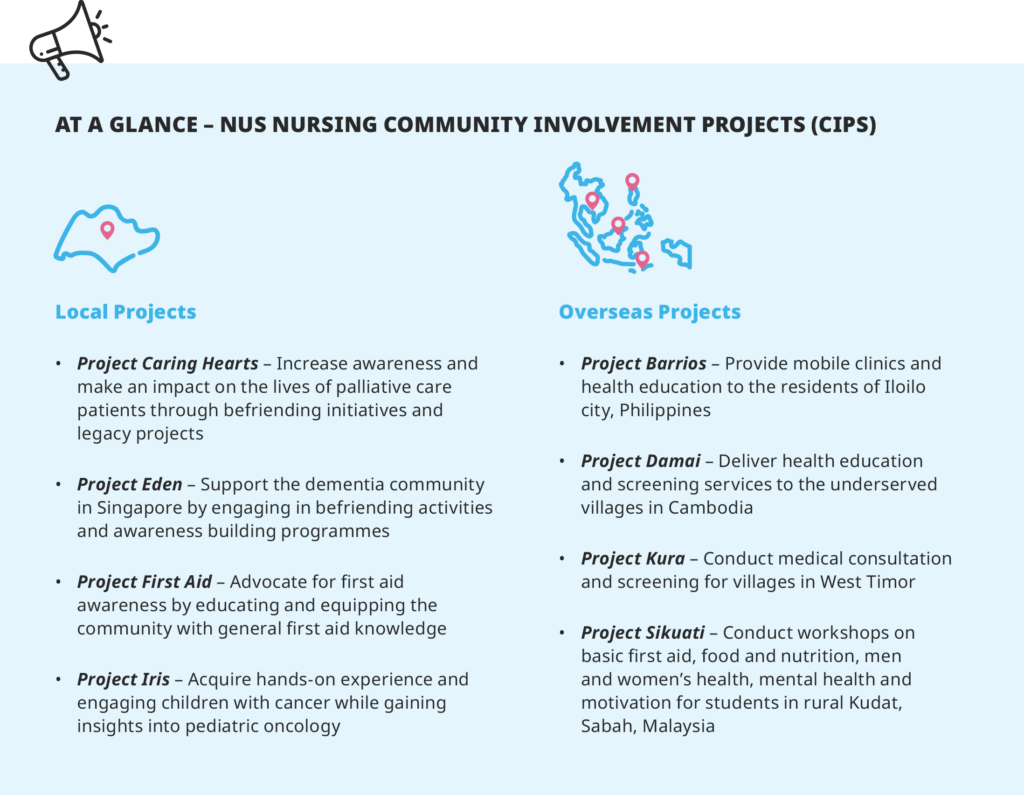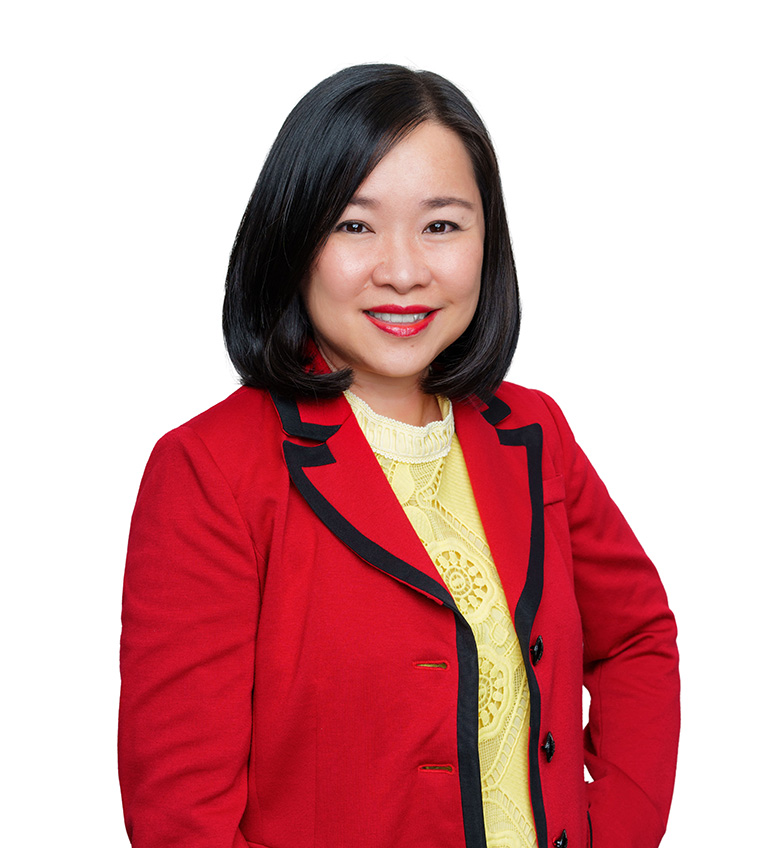
An ageing population, along with transformative trends such as artificial intelligence (AI) and precision medicine, call for a new breed of healthcare professionals—confident, empathetic, adaptable to changes, able to think critically, and possess excellent communication skills and strong mental resilience.
The formal Nursing curriculum is essential for imparting clinical knowledge and skills to students. While soft skills such as empathy and collaboration are currently integrated into the curriculum, they are not vividly emphasised as learning outcomes. This will change starting from Academic Year 2024/2025. Through integrating the NUSOne roadmap into Nursing students’ journey, Alice Lee Centre of Nursing Studies (NUS Nursing), National University of Singapore Yong Loo Lin School of Medicine will work towards enhancing the informal curriculum to better synergise with the formal curriculum—thereby providing Nursing students with a well-rounded and comprehensive educational experience.
Dr Lim Fui Ping, Director of Student Affairs, NUS Nursing, said, “NUSOne is a university-wide initiative designed to equip NUS students with skills needed to navigate challenges in Industry 4.0. Besides knowledge mastery over their chosen discipline, the programme aims to ensure that every NUS graduate possesses strong cognitive ability, interpersonal aptitude, mental resilience, flexibility, self-awareness, empathy and global exposure. These attributes are equally crucial for Nursing students to effectively carry out their professional responsibilities in an increasingly complex healthcare landscape when they graduate.”
She continued, “That said, Nursing is a professional degree with a regulated curriculum governed by the Singapore Nursing Board. This entails meeting particular curriculum and training standards to ensure our students are eligible for board registration upon graduation. Despite this, we have identified multiple areas where we can strengthen our programmes to better align with NUSOne.”

Checkpoint 1: Match Strengths to Opportunities
Entering university marks a major transitional period for many students, who need to navigate a new environment and a new educational system.
“As part of the NUSOne roadmap, we aim to provide Nursing students personalised support and early exposure to areas of specialisation where they may excel. As an example, if a student shows an aptitude for working with older adults affected by dementia, we want to nurture their strengths in this area through Project Eden, which is designed to enhance comprehension of the ageing process and dementia in a non-traditional classroom environment; or if they harbour a strong passion for paediatrics, Project Iris could help strengthen and cultivate their enthusiasm in this area,” Dr Lim said. “Nonetheless, at present, we lack the tools to identify their individual strengths and weaknesses. By introducing personality profiling to Year 1 Nursing students, we could uncover our students’ inclination early and pair them with corresponding programmes that empower and support their overall growth.”
Checkpoint 2: Encourage Participation for Exposure

With NUSOne, students are encouraged to not limit their learning to within classrooms—but hone their soft skills through active participation in student organisations, campus events, global programmes, residential life activities and work internships or attachments.
Dr Lim shared, “As a component of their educational preparation to become Registered Nurses, our students are expected to complete clinical placements at healthcare institutions. Hence, they are well-exposed to professional practice ahead of their graduation. Additionally, we provide numerous local and international Community Involvement Projects (CIPs) for students to participate in, each offering distinct experiences and complementary exposure to the formal curriculum.
“The issue at hand is how to motivate all individuals to actively engage in these activities despite their busy formal curriculum schedules. To address this challenge, we are implementing a 2-fold strategy. Firstly, we aim to increase awareness of these CIPs by enhancing their visibility. This includes highlighting the potential impact students can have and the valuable experiences they can acquire. Additionally, we are exploring ways to more effectively monitor students’ involvement, and potentially enhance the incentives for participating in CIPs.”
Checkpoint 3: Transform Learning and Leadership Opportunities into Engagements
Through CIPs, our students get to learn in real-world settings and acquire insights into community challenges and requirements. They can also apply creative and critical thinking to make a positive difference in the lives of others.
“We are committed to going beyond mere participation. To ensure that our students’ learning is rich and meaningful, it is essential to crystallise their experiences into valuable lessons with impactful learning points. To achieve this, we need to imbue each activity with a strong purpose and a defined learning outcome, making a lasting impact on their future practice,” Dr Lim said.
“At present all CIPs are led by students—and we acknowledge that establishing learning objectives may not come easy or be intuitive for the students. As a solution, we will assign a staff advisor to each CIP. The staff advisor would offer mentorship and support students in cultivating their reflective, leadership, and interpersonal abilities. Our intention is for the CIPs to remain student-led, with the staff advisor providing advice and guidance without assuming control over the management of the CIPs.”
“As NUSOne becomes part of our students’ educational journey, we hope that they will not only graduate with knowledge mastery and domain expertise but also be respected within the healthcare sector for qualities like self-awareness and empathy; critical thinking and intellectual curiosity; mental resilience and flexibility as well as strong interpersonal skills. Better yet—they are distinguishable and recognisable as an NUS-trained Nursing professional.”
– Dr Lim Fui Ping, Director of Student Affairs, NUS Nursing



